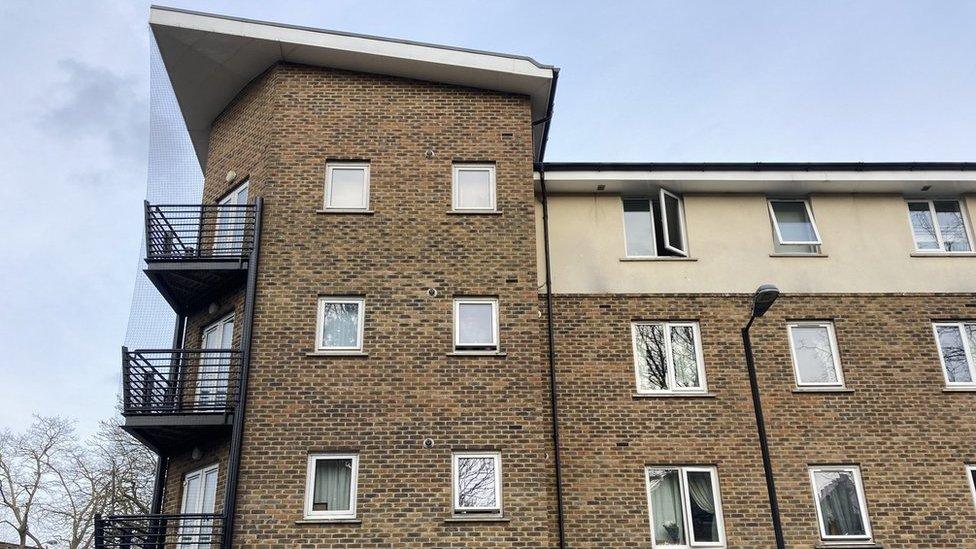What we can learn from a lonely death in social housing
- Published
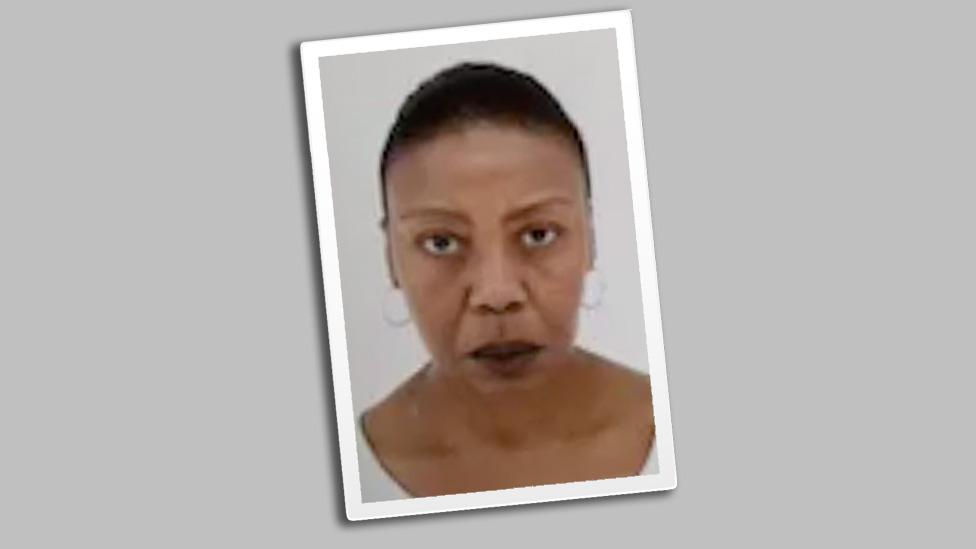
The failure to discover Sheila Seleoane's body for two-and-a-half years caused widespread shock
For a week, BBC News has been examining the story of Sheila Seleoane, a 58-year-old medical secretary who died in south London August 2019 and went undiscovered for two-and-a-half years. It's a story about social housing, isolation, bureaucracy, and community. What have we learnt?

For 12-year-old Chialuzue, finding out that Sheila, who lived down the corridor from him, had lain dead in her flat for two and a half years had a deep impact.
"Ever since the police came to knock down the door I've been sleeping with my Mum because I'm too scared to sleep alone," he tells me, many months after Sheila's body was found in February 2022.
"I don't feel like coming back home, because I don't want to get reminded of what happened."
He adds: "It's affected me at school. Right now it's an assessment week. Every time I do an assessment, I just think about what happened and it brings me down."
Sheila's neighbours in their block, including Chialuzue's mum, Evelyn, are not activists or campaigners. In many ways they want to get on with their lives. But they agreed to share their stories, partly out of a sense of anger at what had happened, but also out of a sense that Sheila's death could tell us something wider about modern society.
In the weeks and months after Sheila died, her neighbours made repeated attempts to raise the alarm about a "smell of death" and an infestation of maggots in their south London block.
For more than a year, no-one from their housing association Peabody visited the block, Lord's Court, in response to their concerns.
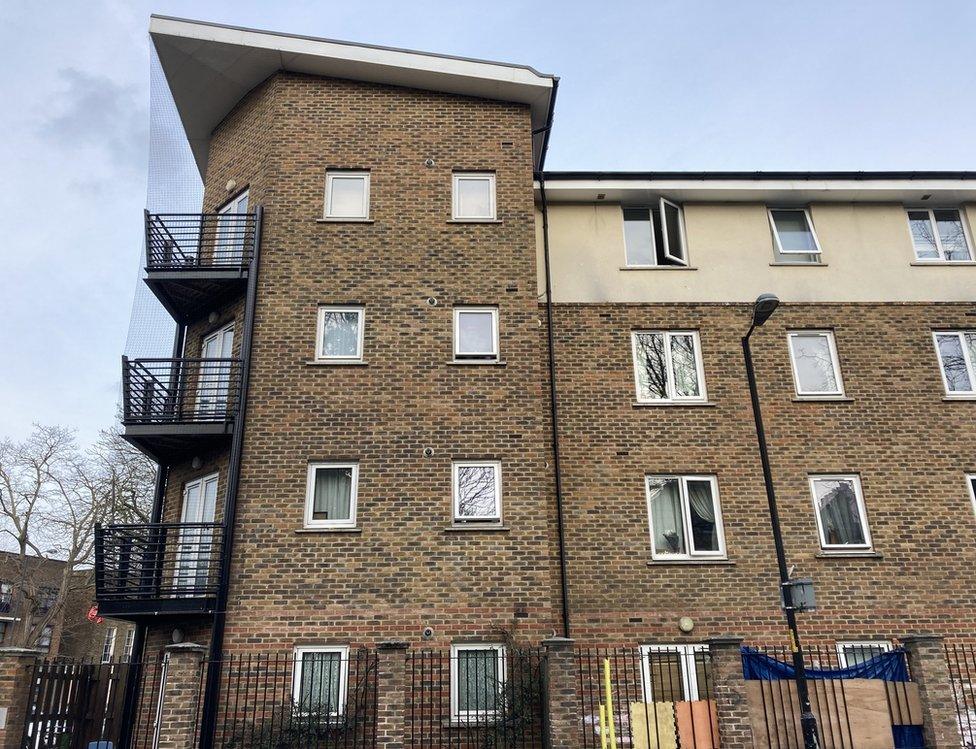
Sheila's neighbours at Lord's Court, where she lived on the top floor, said she was shy but friendly
In October 2020, 14 months after Sheila died, the Metropolitan Police was eventually asked to do a welfare check. But a mistake by the police meant Peabody was told Sheila had been seen alive and well. That was not true, but it meant Peabody closed the case on the neighbour's complaints.
It would be another 16 months before Sheila's body was found in February 2022.
The Metropolitan Police apologised. But there were also other factors that led to her lying undiscovered for so long.
Social housing 'mega-corporations'
One aspect of this story we've explored is whether housing associations, like Peabody, have become too large, bureaucratic and removed from their tenants.
Sheila's neighbours in Lord's Court have spoken about feeling "neglected" and, as part of our investigation, the BBC revealed some of the residents are in discussions with lawyers about legal action against Peabody.
Housing associations tend to divide their social housing into "patches", usually based on a geographic area. Each "patch" has a neighbourhood manager or housing officer whose job it is to know residents' issues and concerns, resolve problems and to provide support.
Charlie Trew, head of policy at the housing charity Shelter, said that whereas many housing associations used to be small and localised, they are now often "mega-corporations".
"That can cause some real problems because you end up with housing managers that are looking after nearly 1,000 people in their homes," he said. "For tenants, they're going to get less time if they complain. They might well be seen as a problem, or an issue, like a task that they need to be got rid of, rather than a person."
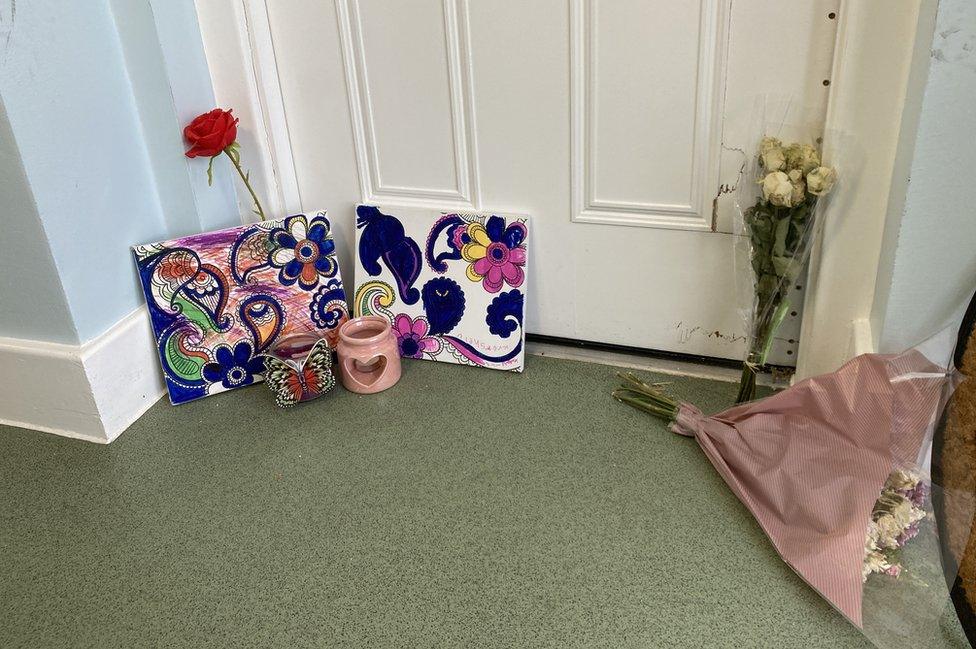
Flowers were left by well-wishers after Sheila's body was found
In an interview on BBC Radio 4's Today programme this week, Peabody chief executive Ian McDermott apologised for the housing association's failings in this case.
He said Peabody was "fundamentally and systematically changing the way that we operate". But he denied there was evidence that larger organisations provide poorer services.
"If you look at the really tragic cases, they're not confined to larger associations," he said.
He added he was breaking Peabody into smaller patch sizes, with directors in charge of local areas "so that we get closer to our customers".
Government 'mistakes and errors'
Another part of this story is the wider state of social housing.
The housing secretary Michael Gove said it "speaks to a wider culture of neglect".
"Social housing tenants should be some of the best-supported people in our society. This is just another example of people being let down," he told BBC Radio 4's Today programme.
Mr Gove drew comparisons to the Grenfell Tower fire, when 72 people died, and the death of Awaab Ishak, the two-year-old boy who died in December 2020 from a respiratory condition caused by "extensive" mould in a one-bedroom social housing flat in Rochdale.
"They all point us towards a problem that we've had on the past with social housing landlords treating their tenants with a degree of distance and, in some cases, neglect. That is unacceptable."
Charlie Trew, from Shelter, agreed that housing associations' original mission to put "tenants first and profit second" was, in some cases, "going out the window".
But he said the government had some responsibility.
Gove: Some housing associations putting "black and white figures" ahead of engagement with residents
"What we've seen since 2010 [when the Conservative-led coalition came to power], is that the total amount of money from central government to build and deliver social housing has gone down," the charity's head of policy said.
"Increasingly, you're seeing housing associations focused on the financial performance of the business rather than on the tenants.
"That's why we need to see more government grant funding, so that the housing associations can concentrate on their tenants. Otherwise something has to give, and unfortunately that ends up being the tenants' experience."
Michael Gove said "there were some mistakes and errors" by the coalition government, and also previous Labour governments, that have contributed to social housing tenants not being heard.
He accepted that the government was wrong to abolish the social housing regulator a decade ago and to scrap the National Tenant Voice organisation after only about a year of operation. Mr Gove said the government was addressing both issues.
"Change has to come and we are delivering that change," he said, pointing to tougher regulation of social landlords in the new Social Housing Bill that is completing its final stages in Parliament.
Estrangement and isolation
Another important factor in this case was how isolated Sheila Seleoane was.
She had one half-brother who she was estranged from. No other family or friends came to her initial funeral in London. When her body was flown to South Africa, to the village her mother had left for the UK in 1954, distant family who she had never met buried her in the family plot with a warm ceremony.
Sheila worked as an agency secretary so it is unlikely she had a regular place of work or regular colleagues.

Neighbour Audrey says the impact of Sheila's death will "stick with us for the rest of our lives"
This series also highlighted how little we know about the number of people experiencing severe isolation.
Robin Hewings, from the Campaign To End Loneliness, said countries such as Japan had done in-depth research into isolation but the UK hadn't explored it in a systematic way.
"Almost by definition, it's hard to find people who are living very socially isolated lives," he said, adding it would be helpful to know how many people are severely isolated so that support could be offered.
Whether the UK carries out such research, or the government's social housing bill delivers on Mr Gove's promises, it will come too late for neighbours such as Audrey, who still lives directly opposite Sheila's old flat.
"This will stick with us for the rest of our lives," she said, fighting back tears.
"I literally face Sheila's flat. Every day I leave my house I'm reminded of what happened. And it could have been avoided."
Related topics
- Published3 April 2023

- Published21 July 2022
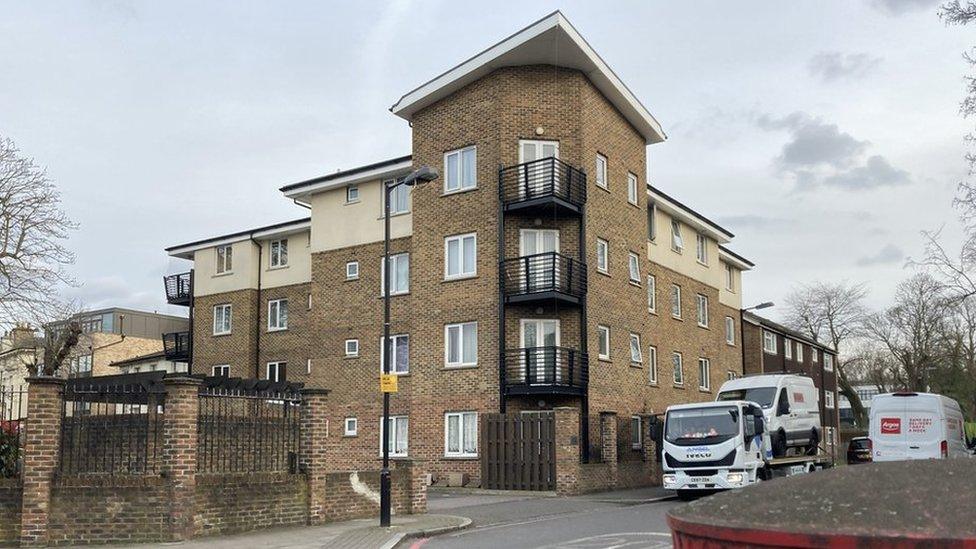
- Published23 July 2022
